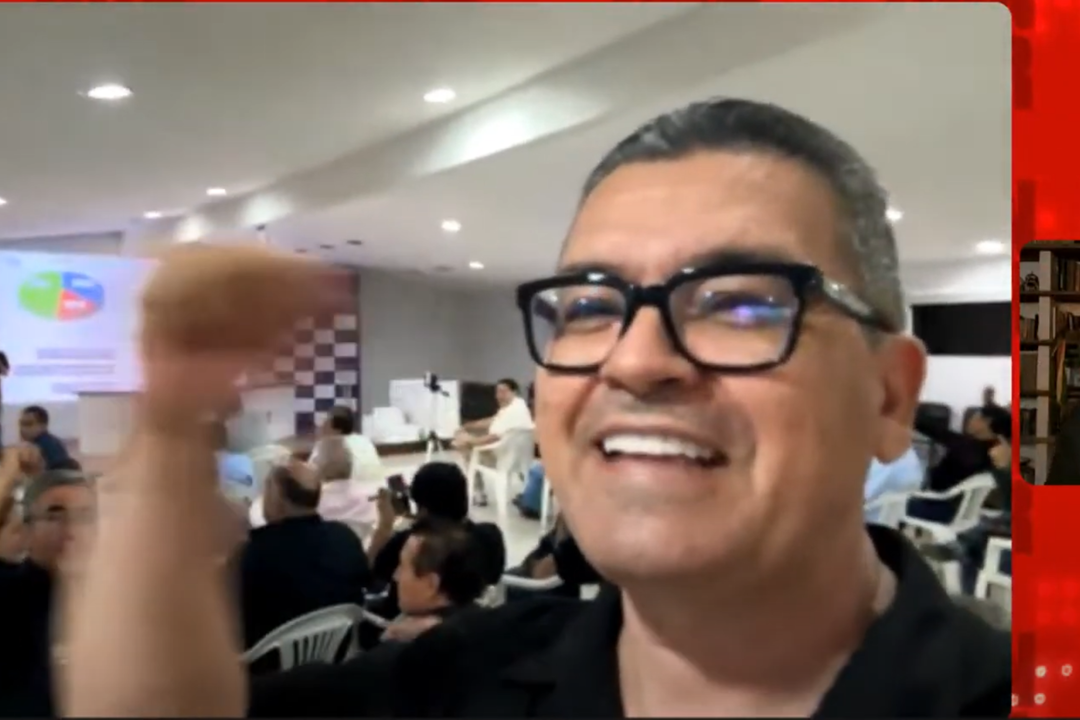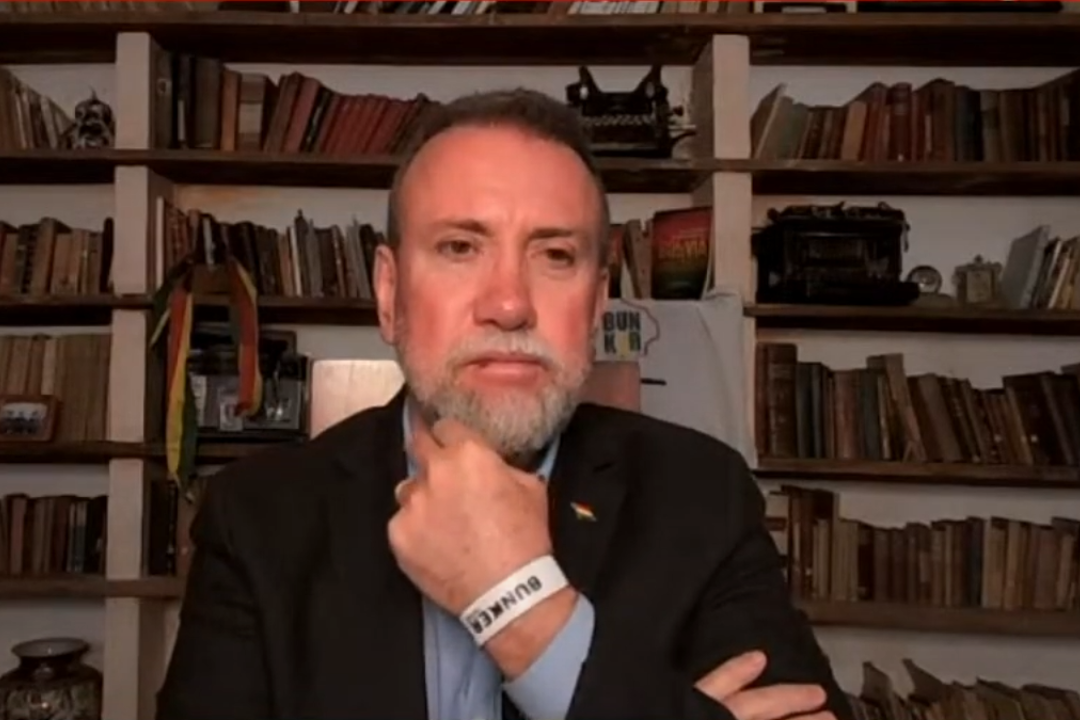
Interview on Electoral Oversight with Guillermo Capobianco
Introduction
Today, we’re joined by Guillermo Capobianco, representing SOS Electoral, a group dedicated to electoral oversight in Bolivia for several years. Bolivians know that without effective vote monitoring, we face despair, persecution, and electoral fraud. With the August 17, 2025, elections approaching, allegations suggest the Movement Toward Socialism (MAS) is preparing a “fraud machine.” However, the extent of any fraud depends on our collective action. Guillermo will share details about citizen-led electoral oversight efforts. Welcome, Guillermo, and thank you for joining us!
Overview of SOS Electoral
Guillermo Capobianco, representing SOS Electoral, thanked the program for the invitation and outlined his group’s mission:
-
Origin and Purpose: SOS Electoral was reactivated in 2024, initially for subnational elections, but with a broader goal: to work for Bolivia, not a single party. The group aims to ensure patriotic, citizen-driven electoral oversight, benefiting the nation rather than individual candidates.
-
Experience: With a track record in subnational elections, SOS Electoral collaborates with experts who have worked on electoral processes in Venezuela, Chile, and Ecuador, applying proven methodologies.
-
Current Activities: The group is conducting nationwide training sessions. During the interview, Capobianco noted a training session underway in Santa Cruz, focused on preparing delegates for electoral oversight.
-
National Reach: While starting in Santa Cruz, the goal is to replicate the model nationwide, working with organizations like CONADE, political parties, and engineers in Bolivia and abroad.
Importance of Electoral Oversight
Capobianco emphasized that electoral oversight cannot be improvised and requires a broad alliance to prevent fraud:
-
Past Experiences: In 2020, SOS Electoral collected 15,000 electoral tally sheets via photos sent by citizens, enabling a report documenting alleged fraud. This work will be featured in an upcoming book, The Documented Destruction of Bolivia, the third in a series.
-
Goal for 2025: To present accurate election results on August 17, comparing them with official data to expose any manipulation. The group seeks to motivate Bolivians to participate actively, not just by voting but as delegates at polling stations.
-
Call to Action: Capobianco urged citizens to join training sessions, photograph tally sheets, learn electoral laws, and provide logistical support (e.g., bringing food to delegates). He stressed that oversight must benefit all Bolivians, not the government.
Proposal for National Unity
The interviewer and Capobianco agreed on the need to unify efforts for effective electoral oversight:
-
Technical Committee: A technical committee has been formed, involving institutions, political parties, and citizens to coordinate oversight. Capobianco expressed excitement about this alliance, which began forming in May 2025, connecting previously isolated groups.
-
Delegates Nationwide: The goal is to have titular and alternate delegates at every polling station, ensuring nationwide presence. This requires human resources, technology, and methodology, which are being consolidated through collaboration.
-
Role of “The Bunker”: The program, known as “The Bunker,” offers itself as a communication and activism tool, connecting oversight initiatives. It aims to disseminate information, collect data, and mobilize citizens, including those abroad, to participate.
Criticism of the 2020 Election Process
Capobianco and the interviewer highlighted irregularities in the 2020 elections:
-
Lack of Transparency: They criticized the opaque process, with results based on exit polls without detailed public vote counts. Notably, no polling stations were annulled, unusual for Bolivia, where historically 5 to 100 stations are recounted due to irregularities.
-
Lesson Learned: The 2020 experience, where citizens “voted blindfolded,” underscores the need for robust citizen oversight in 2025.
Call for Political Unity
The interviewer expressed concern over division among opposition candidates and proposed a solution:
-
Lack of Coordination: Leaders like Samuel Doria Medina, Tuto Quiroga, Manfred Reyes Villa, and others are creating separate candidate lists, weakening the opposition. Doria Medina announced his vice-presidential candidate, Lupo, a trusted ally and former minister under Quiroga, but no joint effort exists.
-
Unity Proposal: The interviewer suggested that opposition candidates (Doria Medina, Quiroga, Reyes Villa, Paz, Dun, Foster) unite in a single political project, with a shared list of the best candidates for president, vice president, senators, and deputies. This would maximize resources in a country facing economic crisis.
-
Public Consultation: He urged candidates to ask on social media, “What do you want from me?” The interviewer predicted the public would respond, “Unite!” Unity is essential to counter the MAS, which controls the executive, legislative, judicial, and electoral powers.
Allegations of Conflict and MAS Strategies
The interviewer warned of MAS maneuvers to destabilize the elections:
-
Police Mobilization: On May 14, a police communiqué ordered officers to travel to La Paz for an “institutional support mission.” This coincided with an attack on a police contingent in Patacamaya, suggesting rising tensions.
-
MAS Internal Division: Andrónico Rodríguez rejected the MAS’s imposed candidate lists, declaring he will run independently, refusing alliances with Evo Morales or Luis Arce. In a national meeting, the MAS chose Luis Arce as its presidential candidate and Daisy Choi as vice president, despite Arce’s earlier withdrawal, claiming “the people demand it.”
-
Risk of Election Suspension: Allegations suggest the MAS may delay the August elections to 2026, combining them with April’s subnational elections. This would allow the approval of massive loans (3-4 billion dollars) to address fuel shortages and boost their image. A joint Arce-Morales candidacy was speculated.
-
Social Unrest: The interviewer warned that the MAS might provoke violence (e.g., “casualties” in clashes) to justify suspending elections, citing instability. The evista march to La Paz, starting May 14, could escalate tensions.
Conclusion and Call to Action
The interviewer and Capobianco stressed the urgency of citizen-led electoral oversight and political unity:
-
Citizen Commitment: SOS Electoral and The Bunker called on Bolivians to participate actively as delegates, photographing tally sheets, or providing logistical support. A contact number was shared for those wishing to join, including from abroad.
-
Hope and Unity: Despite pessimism from some who believe fraud is inevitable, Capobianco asserted that with technology, methodology, and mass participation, irregularities can be documented and countered. The interviewer urged citizens to join oversight efforts and pressure opposition candidates to unite.
-
Final Message: “We don’t want our votes stolen. We want the people’s choice to prevail.” The program closed with praise for the SOS Electoral team in Santa Cruz, working selflessly for the nation, and a call to resist the “mafia destroying Bolivia.”
Public Engagement
Want to join electoral oversight? Send your name, city, and voting location (or the nearest polling station where you can help) to the provided contact number. Even if you can’t vote, you can assist with logistics or outreach. Join the fight for transparent elections! We’ll continue reporting and fighting tomorrow. Long live a free Bolivia!

